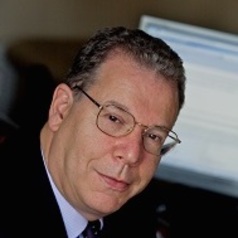
David Levy
Director of the Reuters Institute for the Study of Journalism, University of Oxford
David Levy has been Director of the Reuters Institute since September 2008.
His work covers the full range of issues around developments in journalism and he has particular interests in public service broadcasting, media regulation and business models, and the interaction between digital technology and media regulation.
His publications include ‘Europe's Digital Revolution: Broadcasting Regulation, the EU and the Nation State’, Routledge 1999/2001, and joint editor with Rasmus Kleis Nielsen of 'The Changing Business of Journalism and its Implications for Democracy' (Reuters Institute 2010) and joint editorship with Nic Newman of the annual Reuters Institute Digital News Report (Reuters Institute 2012-16).
Before joining the Institute he was Controller, Public Policy at the BBC until 2007 where he led the BBC's policy for the last BBC Charter Review and was in charge of public policy & regulation. Prior to his BBC policy role he worked as a journalist, first for the BBC World Service and then for BBC News and Current Affairs; as a radio producer and reporter on File on 4; as a TV reporter on Newsnight, and as Editor of Analysis on Radio 4.
Dr David Levy holds degrees from the Universities of York, LSE and a doctorate in 20th century French history from Nuffield College, Oxford.
Less ![]()
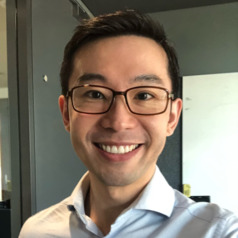
David Li
PhD Candidate, Institute of Transport and Logistics Studies, University of Sydney
David comes from an airline industry background where he has worked across customer journey and ground infrastructure design, operation optimisation, airline loyalty programs and commercial procurement in Australia, New Zealand and the Pacific Islands. David holds an MBA from the University of Sydney, and his PhD thesis aims to bring an academic perspective to examining real-world issues in the industry.
Less ![]()
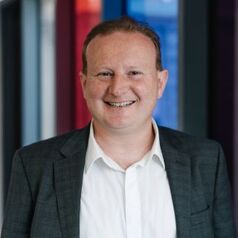
David Littlewood
Senior Lecturer in Strategic Management, University of Sheffield
I am a Senior Lecturer at the University of Sheffield working in the Management School. I research issues of business and society and particularly social innovation and entrepreneurship in Africa.
Less ![]()
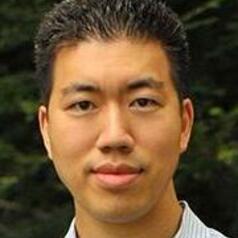
David Liu
Professor of the Natural Sciences at Harvard University, Harvard University
David R. Liu is the Richard Merkin Professor and director of the Merkin Institute of Transformative Technologies in Healthcare, vice-chair of the faculty at the Broad Institute of MIT and Harvard, the Thomas Dudley Cabot Professor of the Natural Sciences at Harvard University, and a Howard Hughes Medical Institute (HHMI) investigator. Liu’s research integrates chemistry and evolution to illuminate biology and enable next-generation therapeutics. His major research interests include the engineering, evolution, and in vivo delivery of genome editing proteins such as base editors to study and treat genetic diseases; the evolution of proteins with novel therapeutic potential using phage-assisted continuous evolution (PACE); and the discovery of bioactive synthetic small molecules and synthetic polymers using DNA-templated organic synthesis and DNA-encoded libraries. Base editing—the first general method to perform precision gene editing without double-stranded breaks, and a Science 2017 Breakthrough of the Year finalist—as well as prime editing, PACE, and DNA-templated synthesis are four examples of technologies pioneered in his laboratory. These technologies are used by thousands of laboratories around the world and have enabled the study and potential treatment of many genetic diseases.
Liu graduated first in his class at Harvard College in 1994. During his doctoral research at UC Berkeley, Liu initiated the first general effort to expand the genetic code in living cells. He earned his PhD in 1999 and became assistant professor of chemistry and chemical biology at Harvard University in the same year. He was promoted to associate professor in 2003 and to full professor in 2005. Liu became a Howard Hughes Medical Institute investigator in 2005 and joined the JASONs, academic science advisors to the U.S. government, in 2009. In 2016 he became a Core Institute Member and Vice-Chair of the Faculty at the Broad Institute of MIT and Harvard, and Director of the Chemical Biology and Therapeutics Science Program.
Liu has been elected to the U.S. National Academy of Sciences, the U.S. National Academy of Medicine, and the American Association for the Advancement of Science. He is the 2022 King Faisal Prize Laureate in Medicine. He has earned several University-wide distinctions for teaching at Harvard, including the Joseph R. Levenson Memorial Teaching Prize, the Roslyn Abramson Award, and a Harvard College Professorship. Liu has published more than 220 papers and is the inventor on more than 85 issued U.S. patents. His research accomplishments have earned distinctions including the Ronald Breslow Award for Biomimetic Chemistry, the American Chemical Society David Perlman Award, ACS Chemical Biology Award, the American Chemical Society Pure Chemistry Award, the Arthur Cope Young Scholar Award, the NIH Marshall Nirenberg Lecturer, and awards from the Sloan Foundation, Beckman Foundation, NSF CAREER Program, and Searle Scholars Program. In 2016 and 2020 he was named one of the Top 20 Translational Researchers in the world by Nature Biotechnology, and was named one of Nature’s 10 researchers in world and to the Foreign Policy Leading Global Thinkers in 2017. He is the founder or co-founder of several biotechnology and therapeutics companies, including Beam Therapeutics, Prime Medicine, Editas Medicine, Pairwise Plants, Exo Therapeutics, Chroma Medicine, and Resonance Medicine.
Less ![]()
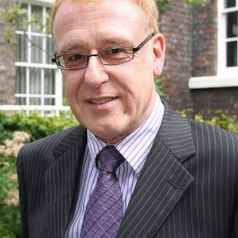
David Lowe
Principal Lecturer in Law, Liverpool John Moores University
Having had an enjoyable 27 year police career I have now established a new career in academia where I am a principal lecturer at Liverpool John Moores University's Law School teaching and researching terrorism, security, policing, human rights, criminal law and public law. I have a number of books, journal articles and book chapters on terrorism and policing already published, with other research due to be published soon.
As a result of my research and experience in policing, my services to provide expert commentary for local, national and international media is frequently requested. I have appeared on the BBC radio and TV, Sky news, Al Jazeera, France 24, DW Germany, Russia Today, TRT World (Turkey) and Al Arabyia television LBC and Voice of Russia. I have also provided commentary for UK's press including The Guardian and Daily Mirror as well as Slovakia's Pravda Austria's Der Presse and the US's Washington Post, Wall Street Journal and New York Times amongst others. These have been on issues on terrorism, security, human rights and European Arrest Warrants. I regularly review the newspapers for City Talk.
I am currently an external examiner at Teeside University on their police foundation programmes, Coventry University's undergraduate law degree programme and the University of Central Lancashire's MSc programme on terrorism studies.
I am a member of the Liverpool Law Society's Criminal Practice Committee and an academic fellow of the Inner Temple.
I am currently assisting Merseyside Police's Prevent team on issues related to radicalisation to extremist causes.
Less ![]()
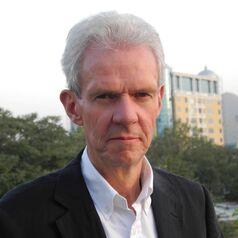
David Loyn
Senior Visiting Research Fellow, Department of War Studies, King's College London
David Loyn is an author, journalist and analyst who specialises in Afghanistan, South Asia and imperial history. He is currently on an advisory panel to the FCDO on South Asia policy, and co-convenor of a mid-career course for diplomats for the FCDO International Academy on South Asia and Afghanistan. He writes regularly on Afghanistan for the Spectator.
As a BBC correspondent for more than three decades, David won awards in both Radio and Television reporting, including Journalist of the Year from the Royal Television Society for his reporting of the Kosovo conflict in 1998. His last posting as correspondent was in Afghanistan, a country he has been visiting since 1994, including several trips during Taliban control.
From 2017-2018 David worked as Strategic Communications adviser in the office of Afghan President Ashraf Ghani. He holds an MA degree in Modern History from Oxford University, and is a qualified barrister. He joined the War Studies Department at King’s in September 2016.
David is a board member of Peace Direct, and an Associate of the Imperial War Museum.
Areas of expertise
• Afghanistan and South Asia
• Strategic communications
• History of war reporting
• International development
• Intervention doctrine
• Imperial history
Publications
Books
• The Long War—the Inside Story of America in Afghanistan since 9/11; (St Martin’s Press, New York 2021)
• Butcher and Bolt – Two Hundred Years of Foreign Engagement in Afghanistan; (London: Hutchinson, 2008)
• Frontline – Reporting from the World’s Deadliest Places; (Michael Joseph, 2005; updated edition
Summersdale, 2011) Shortlisted for the Orwell Prize.
Less ![]()
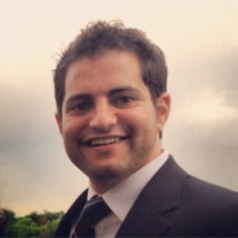
David M. Greenberg
Music psychologist, University of Cambridge
My research examines musical behavior at the intersection of personality, social, and cognitive science. It begins from that standpoint that differences in musical experience are not random, but are rather tied to various psychological and cultural processes. Recently, our work has shown that personality and cognitive styles predict musical preferences and musical ability. We also explore a range of other topics including musical talent and skill in autism, how music is linked to resilience and well-being, and whether music can increase empathy and communication skills.
Less ![]()
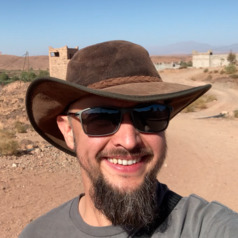
David MacLeod
Lecturer in Climate Risk, Cardiff University
My research focus is climate risk: understanding weather and climate variability and its impacts. I work on forecast horizons from days to decades ahead.
A key part of my work is evaluation and experimentation with initialised climate models. This supports understanding of the drivers of extreme meteorological events, and the degree to which they can be predicted.
This scientific work forms a cornerstone of my work supporting international humanitarian organisations to use forecasts for anticipatory action.
To communicate key ideas to non-scientific partners (and in my teaching) I also use and design "serious games". These are play-orientated activities designed to interactively explore concepts and build core understanding in an engaging way.
Less ![]()

David Mba1
Deputy Vice-Chancellor (Research, Knowledge Exchange and Enterprise), University of the Arts London
Prof David Mba is currently the Deputy Vice-Chancellor, Research, Knowledge Exchange and Enterprise at the University of the Arts London (UAL).
David studied Aerospace Engineering (1st class honours) at the University of Hertfordshire and completed a PhD in Mechanical Engineering at Cranfield University, for which he was awarded the Lord King Norton Gold medal for the most outstanding doctoral thesis.
Professor Mba is a leading authority in machine condition monitoring and has contributed to the development and publication of international standards in the subject area. He is also a visiting Professor at the University of Lagos, Nigeria.
Professor Mba is passionate about education within Africa/Nigeria and has published numerous opinion articles in national media.
Less ![]()
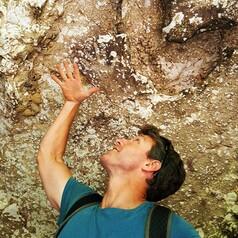
David McGahan
Visiting Researcher, Griffith University
I am a bioarchaeologist with particular interest in the mechanisms that drive biological diversitfication. My research primarily concerns understanding environmental adaptive variation, skeletal biomechanics, and functional anatomy. I employ 3-D modelling of bones and engineering principles to understand the ways in which human behaviour influences skeletal anatomy. With backgrounds in both archaeology and clinical human anatomy, I became involved in archaeological excavations throughout, Africa, Europe, Asia and Australia.
Since 2010, I have concentrated on projects in Philippines, Indonesia, and Eastern Australia, seeking to understand hominin expansion through the region over the last million years. The Maros karst of South Sulawesi is my current research focus and vital to understanding population dispersal and behaviour at the ecological, geographic and cultural crossroads of mainland Sunda (mainland East Asia) and Sahul (Australia and P.N.G.). My other area of interest is environmental adaptations in Senegalese savannah chimpanzees and their relevance to human evolution.
Less ![]()
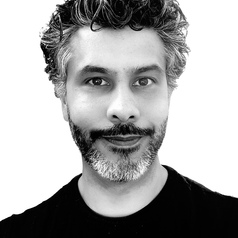
David McInnis
Associate Professor of Shakespeare and Early Modern Drama, The University of Melbourne
David McInnis is Associate Professor of Shakespeare and Early Modern Drama in the English and Theatre Studies program at the University of Melbourne. His research focuses on lost plays from Shakespeare's England.
His most recent books are the monograph *Shakespeare and Lost Plays* (Cambridge University Press, 2021) and the co-edited collection *Shakespeare and Virtual Reality* (Cambridge University Press, 2021).
Less ![]()
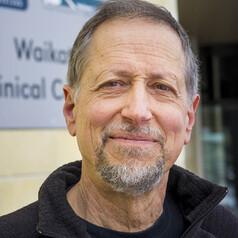
David Menkes
Associate Professor in Psychological Medicine, University of Auckland, Waipapa Taumata Rau
David Menkes is an academic psychiatrist with a background in psychology and pharmacology (MD 1982; PhD 1983, Yale). Since completing specialist training in Dunedin (FRANZCP 1989) he has worked as a liaison psychiatrist in NZ and the UK. His academic role includes scholarly publication (200+ articles and chapters, h-index 30), teaching and research supervision. He is an honorary consultant to the Uppsala Monitoring Centre (WHO Collaborating Centre for International Drug Monitoring) and participates in the Mental Health Advisory Committee for New Zealand’s drug purchasing agency (PHARMAC). He has worked with the International Society of Drug Bulletins (www.isdbweb.org) and contributed to the development of its conflict-of-interest policies.
Less ![]()
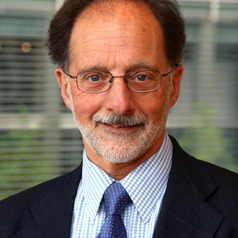
David Metz
I am Honorary Professor in the Centre for Transport Studies at UCL. I was formerly Chief Scientist at the Department for Transport. Earlier in my career I was a member of the scientific staff of the Medical Research Council and a civil servant in various Whitehall departments.
My research interests focus on the growth of travel demand, particularly as this is influenced by demographic factors, and on how this demand is met by investment in the transport system, as this is influenced by transport policy and new technologies.
Less ![]()
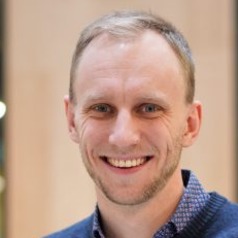
David Meyer
Assistant Professor in Civil and Global Engineering, University of Toronto
I love applying the tools of engineering to analyze problems that matter. Much of my research invents new ways of managing and improving water supply systems in big cities around the world.
I am currently an assistant professor in Global and Civil Engineering at the University of Toronto.
Less ![]()
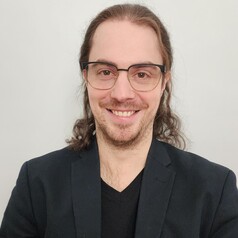
David Mitterauer
PhD Candidate, English, and Research Assistant, Western University
I am a PhD Candidate in English who specializes in early American literature and early Black writing. My interests revolve around eighteenth-century transatlantic literary discourses, particularly the many ways how romance as a genre or literary mode crisscrosses the Atlantic. My dissertation is on interiority in slave narratives and early Black fiction. That is, I am interested in the inner life which Black writers reveal in their testimonies of enslavement, particularly how we can glimpse specific joys and pleasures (and which they choose to keep private) that sustain them in their struggles for freedom. In my work as a graduate student, I have gained substantial experience in archival work on Black history in southern Ontario.
Less ![]()

David Moseley
Senior Research Fellow, Deputy Director (Clinical), Monash Krongold Clinic, Monash University
David is Deputy Director (Clinical), Senior Clinical Psychologist, and Senior Research Fellow at the Monash Krongold Clinic at Monash University where he provides clinical leadership across clinical and research programs. Prior to this, David was the Psychology Discipline Senior at the Early in Life Mental Health Service at Monash Health. He is a passionate clinician and educator, having supported many health and education professionals to develop and extend their clinical and leadership skills. David highly values the expertise of people with lived experience is experienced in co-leadership and co-design.
Less ![]()
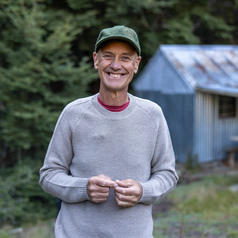
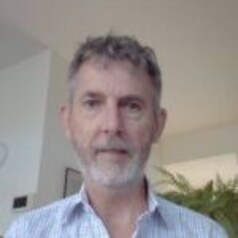
David O'Halloran
Adjunct Lecturer in Work and Labour Market Theory, Monash University
David O’Halloran is an occupational therapist with more than 35 years’ experience in disability employment and vocational rehabilitation services including direct service delivery, program management, project management and policy development at a local, national and international level.
Less ![]()
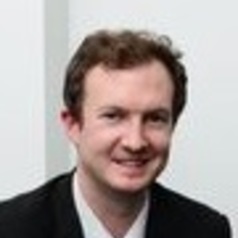
David P. Harris
PhD Student - Sensory Marketing and Consumer Psychology / Sessional Lecturer in Marketing, CQUniversity Australia
David P. Harris is a PhD Student and Sessional Lecturer in Marketing at CQUniversity Australia's School of Business and Law. David's research focuses on sensory marketing and consumer psychology, with particular emphasis on perception, judgment and decision making in online contexts. David also researches touch-screen devices and the role they play in our choice behaviour.
Less ![]()
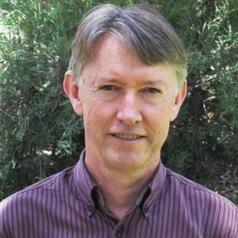
David Pannell
Director, Centre for Environmental Economics and Policy, The University of Western Australia
David Pannell is Professor and Head of the School of Agricultural and Resource Economics at the University of Western Australia, Director of the Centre for Environmental Economics and Policy, and an ARC Federation Fellow (2007-2012). He has been a regular commentator on environmental policy within Australia, arguing for policies that better reflect scientific, economic and social realities. He was President of the Australian Agricultural and Resource Economics Society in 2000, a member of the WA Government’s Salinity Taskforce in 2001, and a director on the Board of Land and Water Australia 2002-05. His research includes the economics of land and water conservation; environmental policy; farmer adoption of land conservation practices; risk management; and economics of farming systems. His research has been published in six books and 200 journal articles and book chapters, and has been recognised with awards from the USA, Australia, Canada and the UK, including the 2009 ARC Eureka Prize for Interdisciplinary Research.
Less ![]()
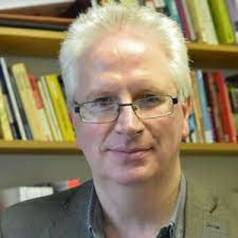
David Pattie
Associate Professor of Drama, University of Birmingham
I've been teaching and researching in drama and theatre studies since 1992. I’m an internationally recognised expert on the work of Samuel Beckett, and I’ve published ground breaking work on live music as a performance. I’ve also written extensively about contemporary British theatre, Scottish theatre, and popular culture.
Less ![]()
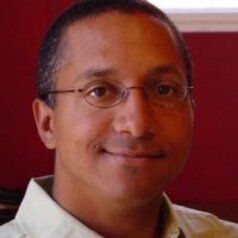
David Pellow
Chair and Distinguished Professor of Environmental Studies, University of California, Santa Barbara
Professor David N. Pellow is the Dehlsen and Department Chair of Environmental Studies and Director of the Global Environmental Justice Project at the University of California, Santa Barbara where he teaches courses on environmental and social justice, race/class/gender and environmental conflict, human-animal conflicts, sustainability, and social change movements that confront our socioenvironmental crises and social inequality. He has volunteered for and served on the Boards of Directors of several community-based, national, and international organizations that are dedicated to improving the living and working environments for people of color, immigrants, indigenous peoples, and working class communities, including the Global Action Research Center, the Center for Urban Transformation, the Santa Clara Center for Occupational Safety and Health, Global Response, Greenpeace USA, and International Rivers.
Less ![]()
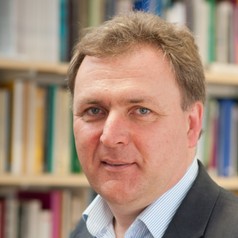
David Phinnemore
Professor of European Politics, Queen's University Belfast
David Phinnemore is Professor of European Politics and Jean Monnet Chair in European Political Science in the School of Politics, International Studies and Philosophy at Queen's University Belfast. He is also Dean of Education in the Faculty of Arts, Humanities and Social Sciences at Queen's University Belfast, as well as Visiting Professor at the College of Europe (Bruges) where he teaches on EU enlargement.
He holds a BA in European Studies (1990) and was awarded his PhD in European Studies by the University of Kent at Canterbury in 1998. His teaching interests are focused on the European Union, notably its institutions, decision-making procedures, external relations and enlargement.
His research interests cover EU treaty reform, EU enlargement, EU external relations and alternatives to EU membership, particularly association.
Less ![]()
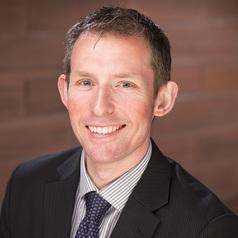
David Putwain
Professor in Education, Liverpool John Moores University
I am interested in the ways in which psychology can be used to understand, inform and improve the education of leaners of all ages. My research has focused on how competence beliefs, motivation, emotions and the classroom environment influence engagement, learning and achievement.
Less ![]()
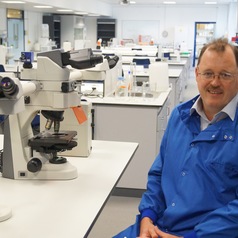
David Pye
Scientific Director of the Kidscan Childrens Cancer Research Charity, University of Salford
I am currently the scientific director of the children's cancer research charity Kidscan, and a senior lecturer in biomedicine at the University of Salford. I teach biomedical science students on a IBMS accredited degree course and a biochemistry course that is accredited by the Society of Biology.
My research interests include cancer treatment, drug design and discovery, ECM biology, polysaccharide structural studies, technical development in glycomics and control of angiogenesis for the treatment of cancer. I also have considerable experience in clinical research, including taking part in radiotherapy and photodynamic therapy clinics and clinical trials. My current research interests include the development of complex polysaccharides as cancer therapeutic agents and the discovery of new antibiotics.
Less ![]()
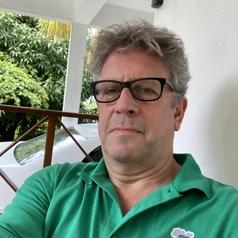
David Pyle
Professor of Earth Sciences, University of Oxford
I studied Geological Sciences at the University of Cambridge, and then completed a PhD in Volcanology, working on the Greek island volcano of Santorini, and in the East African Rift. After a Research Fellowship in Cambridge, including a year as a visiting researcher at the California Institute of Technology, I took up a lectureship in Earth Sciences in Cambridge in 1992. I moved to the Department of Earth Sciences at the University of Oxford in 2006. My research focusses on the behaviour and histories of young and active volcanoes. I have worked extensively on volcanoes in Latin America, Ethiopia, and the Caribbean; and have worked on the rapid-response to volcanic unrest and eruptions in a number of different settings.
I am passionate about public and community engagement. Amongst others, I am involved with Oxford Sparks (http://www.oxfordsparks.ox.ac.uk); was part of the team that created Volcanoes Top Trumps (http://www.volcanoestoptrumps.org), and am currently working on the scientific, political and cultural responses to volcanic crises (https://curatingcrises.omeka.net/).
Less ![]()
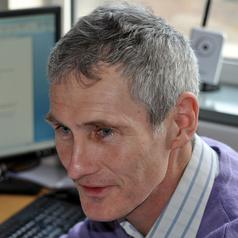
David Reid
Professor of AI and Spatial Computing, Liverpool Hope University
I am a Professor in Computer Science. Having attained my Ph.D. in 1995, researching in the fields of intelligent agent systems, I joined a newly formed group at Liverpool University dedicated to developing and promoting innovative technological solutions for local businesses.
After implementing the first electronic shopping mall in the UK, I spent eight years providing technical leadership on many Internet and Intranet projects. These projects usually involved exploiting newly emergent technology. My current research interests are derived from experience gained in both my academic and industrial backgrounds, and include: AI, Augmented and Virtual Reality and Spatial Computing.
Less ![]()
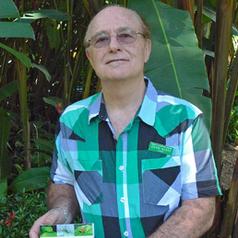
David Rentz
Adjunct Professorial Research Fellow, School of Marine and Tropical Biology, James Cook University
David Rentz received his PhD in Entomology from the University of California, Berkeley and worked in Philadelphia and San Francisco before moving to Australia. From 1976 to 2001 he was Curator of Orthopteroid Insects in the Australian National Insect Collection, Canberra (CSIRO). His research specialty, the katydids (family Tettigoniidae) has resulted in numerous papers and three volumes of a Monograph of Australian Tettigoniidae.
Now retired, he lives in Kuranda, Queensland and continues his studies and contributes to a blog: http://www.bunyipco.blogspot.com.au/ that documents the natural history of the rainforest in which he lives. He is past president of the Friends of the Cairns Botanic Gardens. He is an Adjunct Professorial Research Fellow, School of Marine & Tropical Biology, James Cook University where he advises students and participates in University life.
Less ![]()
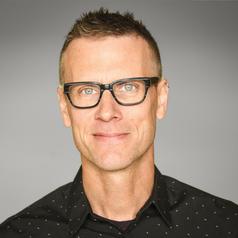
David Risk
Brian Mulroney Institute of Government Research Chair in Climate Science and Policy, St. Francis Xavier University
I am a specialist in gas emissions measurement and data processing techniques, to quantify emissions in natural and industrial settings. My ‘FluxLab’ team at St. Francis Xavier University consists of almost 30 students and professional researchers. We been involved in ecological gas measurement projects from pole to pole, monitoring design for CO2 deep injection sites, but most of our work has focused on quantifying methane emissions from Canadian industry. In recent years we have made gas emission measurements at over 15,000 oil and gas facilities across North America, both onshore and offshore, and over 120 landfills from coast to coast. Our work helps policymakers, regulators, and industry better understand and manage greenhouse gas emissions.
Less ![]()
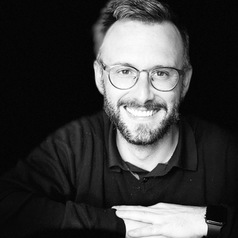
David Rodríguez-Arias
David Rodríguez-Arias es Titular de Filosofía Moral en la Universidad de Granada, Subdirector de FiloLab-UGR (Área de Ética, Departamento de Filosofía I), y Vocal del Comité de Bioética de Andalucía. Sus investigaciones se han centrado en la bioética clínica (final de la vida, trasplantes) y global, la neuroética y la ética de la investigación.
Less ![]()
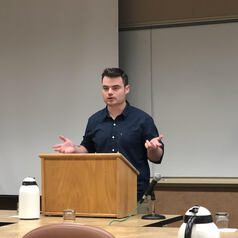
David Rooney
Doctoral candidate, The University of Texas at Austin
I am currently a doctoral candidate in Communication Studies at the Moody School of Communication, University of Texas-Austin. I am generally interested in the intersections of environmental communication, animal studies, and critical/cultural studies. In particular, some of my recent research examines how social hierarchies of race, gender, sexuality and more are reproduced through Western norms of appropriate human-animal and, by extension, human-nature relations. I engage in both critical rhetorical scholarship and public-engaged work on the areas of sustainable food and environmental justice.
Please see my website https://daithirooney.github.io/ for my details on my work
Less ![]()
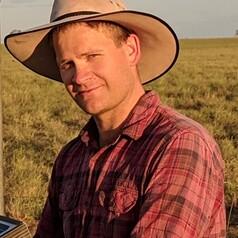
David Rowlings
Professor, Queensland University of Technology
Professor David Rowlings is a soil scientist in the Sustainable Agriculture program at the Centre for Agriculture and Bioeconomy. His research sits at the nexus of the environmental and agricultural science, enabling high impact research outcomes that benefit both fields for positive global change and food security. He specializes in the development and utilization of improved sensing and monitoring technologies for mitigating environmental greenhouse gases, improving crop fertiliser-use efficiency and monitoring soil carbon, reactive nitrogen and biogeochemical processes. His work spans the Australian beef, dairy, grains, sugar and horticulture industries and he has worked internationally in cropping and rice systems.
Less ![]()
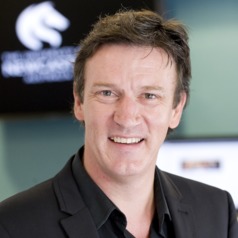
David Roy
Lecturer in Education, University of Newcastle
David Roy is a lecturer in Education and Creative Arts at the University of Newcastle.
His research interests are in pedagogy and homeschooling, drama and arts learning, and dyspraxia and inclusion in Education. He was nominated for the 2006 Saltire/TES Scottish Education Publication of the Year and won the 2013 Best New Australian Publication for VCE Drama and/or VCE Theatre Studies. His most recent text is 'Teaching the Arts: Early Childhood and Primary’ (2015) published by Cambridge University Press.
Less ![]()
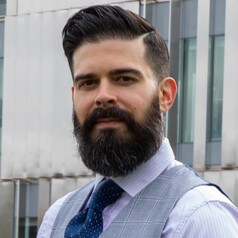
David Samson
Associate Professor, Anthropology, University of Toronto
David’s research directly addresses the central anthropological question of human uniqueness. In other words, the question that drives his work is what is it about our species that has made us the most successful animal on the planet? In the quest to understand what makes humans special, he’s comparatively worked with human and non-human primates (and wolves and dogs) around the globe to better understand the behavioral, physiological, and cognitive suite of traits that likely played a crucial role in our success. Specifically, his research investigates the link between sleep and human evolution through revolutionary new approaches, recording sleep data sets and sleep architecture for a range of primates including lemurs, zoo orangutans, wild chimpanzees, and humans living in different types and scales of societies. His research has probed sleep’s role in cognition, sociality, and group dynamics throughout human evolution.
Less ![]()
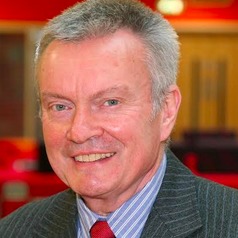
David Sanders
Regius Professor of Political Science, University of Essex
Professor David Sanders is the UK’s first Regius Professor of Political Science. He co-edited the top UK political science journal, the British Journal of Political Science, between 1990 and 2008.
He is a Fellow of the British Academy and received a Special Recognition Award from the Political Studies Association in 2012. From 2000-2012 he was a Principal Investigator for the British Election Study.
His current areas of research include political participation; election forecasting; the politics of the UK public sector; and measuring and assessing European citizenship.
Less ![]()
- Market Data





















